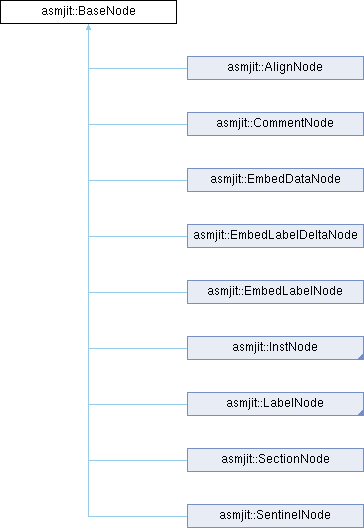asmjit::BaseNode Class Reference [¶]

Base node.
Every node represents a building-block used by BaseBuilder. It can be instruction, data, label, comment, directive, or any other high-level representation that can be transformed to the building blocks mentioned. Every class that inherits BaseBuilder can define its own high-level nodes that can be later lowered to basic nodes like instructions.
